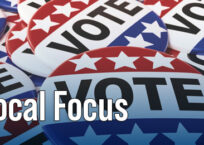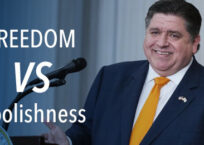
Self-righteous, dissembling librarians are seeking once again to foment “book-banning” hysteria through their annual dishonest Banned Books Week campaign (Sept. 21-27) sponsored by the self-righteous, dissembling, and politically partisan American Library Association (ALA).
The ALA pursues its hysteria-fomenting goal chiefly by ridiculing parents who, for example, don’t want their six-year-olds seeing books about children or anthropomorphized animals being raised by parents in homoerotic relationships. (Scorn and woe to those parents who hold the now-censored belief that homoeroticism—even homoeroticism presented in whitewashed, water-colored images—doesn’t belong in the picture books section of public libraries).
Very few patrons are asking to have books “banned.” They are not requesting that the government or anyone else prohibit the publication or sale of books. Rather, responsible patrons are asking that books that deal with highly controversial topics, particularly sexual perversion, be removed from the section of the library in which children are encouraged by parents and librarians to roam and read freely. Occasionally, a community member will question the purchasing decisions of librarians—purchasing decisions that take place behind the scenes and often constitute de facto “book banning” (to use the ALA’s specious terminology). Librarians can’t be accused of book-banning if behind closed doors they simply choose not to purchase a book in the first place. How conveeenient.
Librarians, like those at the Schaumburg Township District Library, are becoming ever more brazen in their mockery of taxpayers who have different views than they do about which books should be purchased or about where those books should be made available in the library. This year in a cutesy and condescending propaganda effort to mock conservative patrons into ideological submission, Schaumburg Public Library librarians have posted faux-mugshots of themselves holding “banned” books—you know, books that are widely available in virtually every community library.
Most taxpayers have no idea how purchasing decisions in publicly subsidized libraries are made, but they should, because the policy librarians follow serves as a preemptive book-banning mechanism.
Libraries use Collection Development Policies (CDP’s) to determine which books they will purchase with their limited budgets. CDP’s hold that librarians should purchase only books that have been positively reviewed by two “professionally recognized” review journals. Guess what folks, the “professionally recognized” review journals are dominated by ideological “progressives.” Publishing companies too are dominated by ideological “progressives,” so getting books published that espouse conservative ideas (particularly on the topic of homosexuality) is nigh unto impossible.
If librarians really cared about the full and free exchange of ideas and if they really believed that “book-banning” is dangerous to society, they would direct their rage and ridicule at the powerful publishing companies, professionally-recognized review journals, and their own profession, all of which do far more book-banning than does a handful of powerless parents seeking to have a picture book moved.
The American Library Association has a goddess they revere. Their goddess, now deceased, is Judith Krug, past president of the portentously named Office of Intellectual Freedom (or is it the “Ministry of Truth”?) of the American Library Association. In a 1995 interview, she said this:
We have to serve the information needs of all the community and for so long “the community” that we served was the visible community…. And so, if we didn’t see those people, then we didn’t have to include them in our service arena. The truth is, we do have to.…
We never served the gay community. Now, we didn’t serve the gay community, because there weren’t materials to serve them. You can’t buy materials if they’re not there. But part of our responsibility is to identify what we need and then to begin to ask for it. Another thing we have to be real careful about is that even though the materials that come out initially aren’t wonderful, it’s still incumbent upon us to have that voice represented in the collection. This was exactly what happened in the early days of the women’s movement, and as the black community became more visible and began to demand more materials that fulfilled their particular information needs. We can’t sit back and say, “Well, they’re not the high-quality materials I’m used to buying.” They’re probably not, but if they are the only thing available, then I believe we have to get them into the library. [emphasis added]
I wonder if librarians are heeding Krug’s words when it comes to resources that espouse conservative views on the nature and morality of homosexuality. Are the anti-book-banning soldiers fighting to fill the gaping lacuna in their book collections on this topic? Are they fulfilling their responsibility to fill that hole, if necessary with materials that are less than “wonderful”—which is to say, with materials that their “professionally recognized review journals” may not review positively or at all?
Next year, will the Schaumburg librarians display photos of empty shelves where books that challenge Leftist assumptions about the nature and morality of homosexuality should be (you know, pro-heterosexuality/pro-heteronormativity books)?
Will they ask for young adult (YA) novels about teens who feel sadness and resentment about being intentionally deprived of a mother or father and who seek to find their missing biological parents?
Will they ask for dark, angsty novels about teens who are damaged by the promiscuity of their “gay” “fathers” who hold sexual monogamy in disdain?
Will they ask for novels about young adults who are consumed by a sense of loss and bitterness that their politically correct and foolish parents allowed them during the entirety of their childhood to cross-dress, change their names, and take medication to prevent puberty, thus deforming their bodies?
Will they ask for novels about teens who suffer because of the harrowing fights and serial “marriages” of their lesbian mothers?
Will they ask for picture books that show the joy a little birdie experiences when after the West Nile virus deaths of her two daddies, she’s finally adopted by a daddy and mommy?
Surely, there are some teens and children who will identify with such stories.
Maybe next year, Schaumburg librarians will display mugshots of themselves holding these books:
- What is Marriage? Man and Woman: A Defense by Ryan Anderson, Robert George, and Sherif Girgis
- One Body by Alexander Pruss
- Ex-Gays? by Stanton Jones and Mark Yarhouse
- The Bible and Homosexual Practice by Robert Gagnon
- The God of Sex by Peter Jones
- The Meaning of Marriage edited by Robert George and Jean Bethke Elshtain
- Divorcing Marriage edited by Daniel Cere and Douglas Farrow
- Out From Under: The Impact of Homosexual Parenting by Dawn Stefanowicz
- The Secret Thoughts of an Unlikely Convert by Rosaria Champagne Butterfield
- Out of a Far Country by Christopher Yuan and Angela Yuan
Oh, wait. Unlike the books the librarians are holding this year, these books actually aren’t in their library. Hmmm, I wonder if they were banned.
Laurie Higgins’ responds to criticisms on this article, CLICK HERE.
Illinois Family Institute
Faith, Family and Freedom Banquet
Friday, September 19 , 2014
The Meadows Club – Rolling Meadows, IL
Secure your tickets now – click here or call (708) 781-9328.























